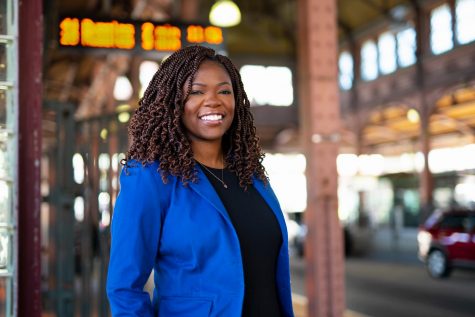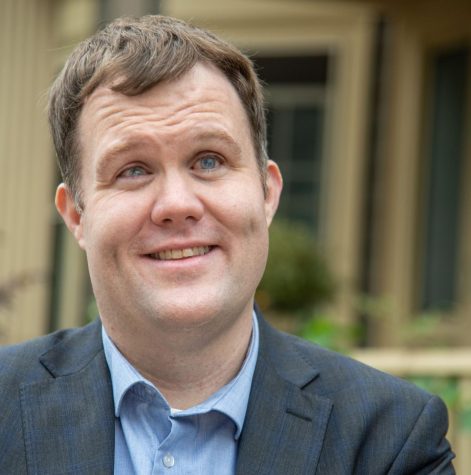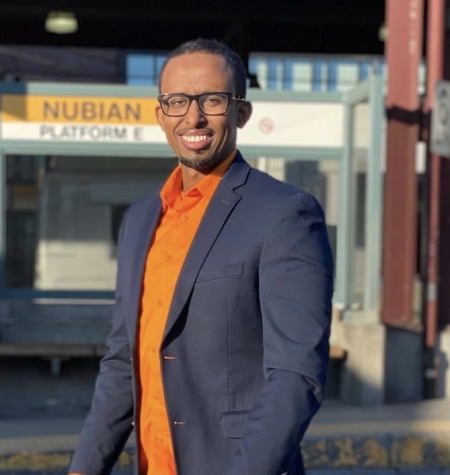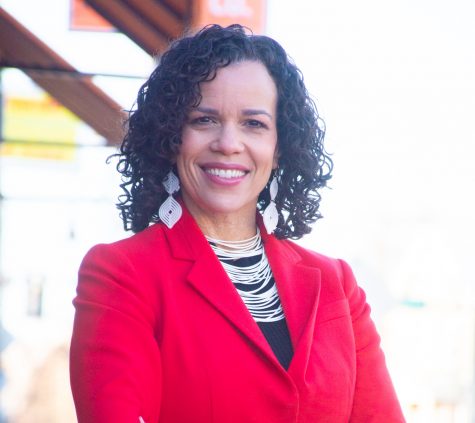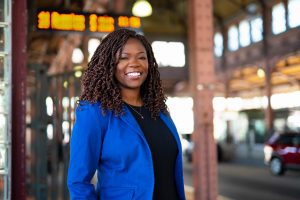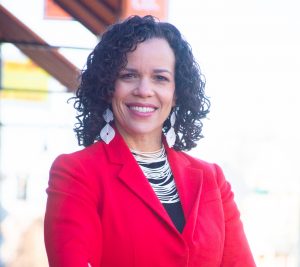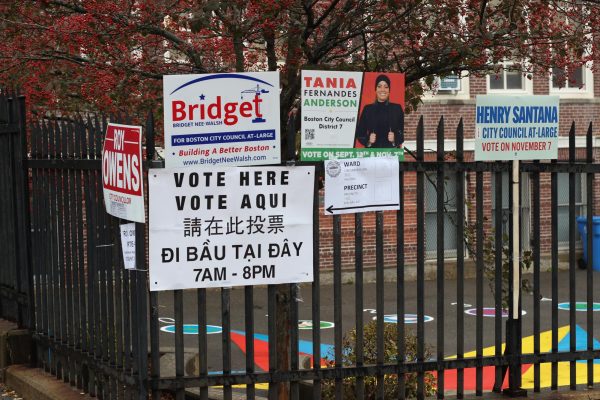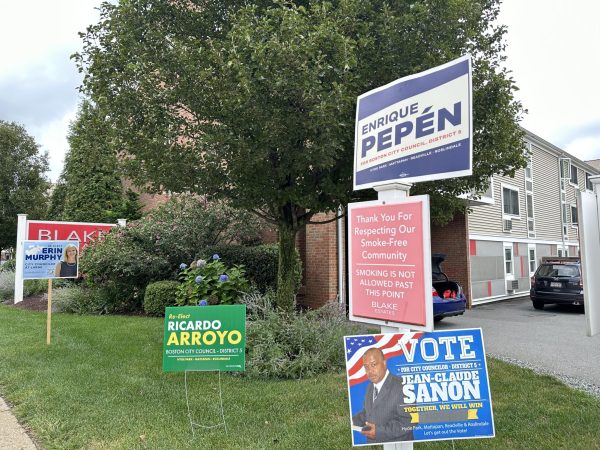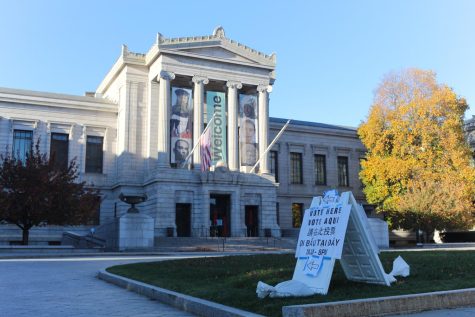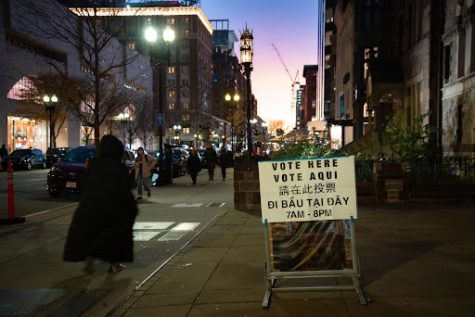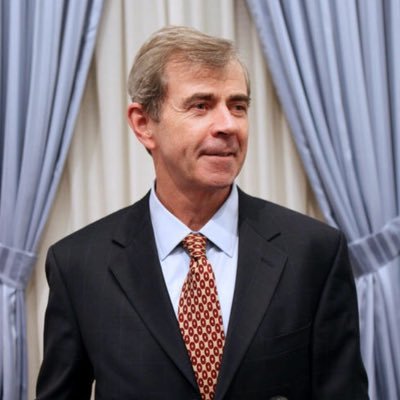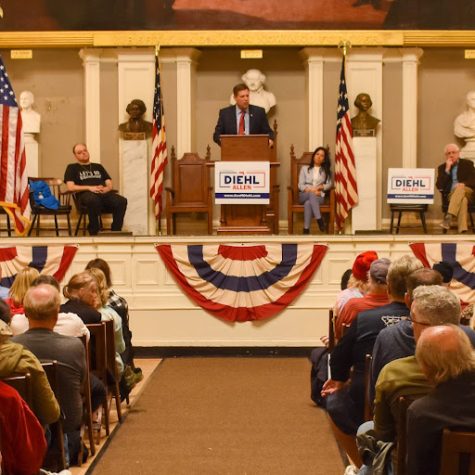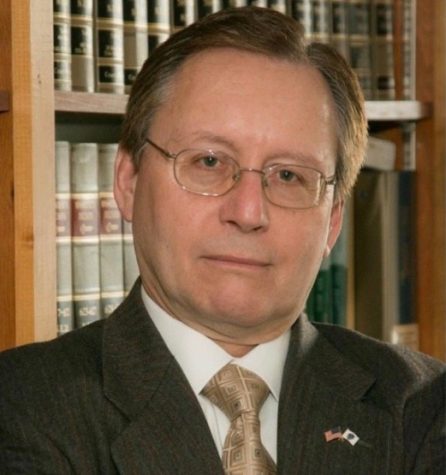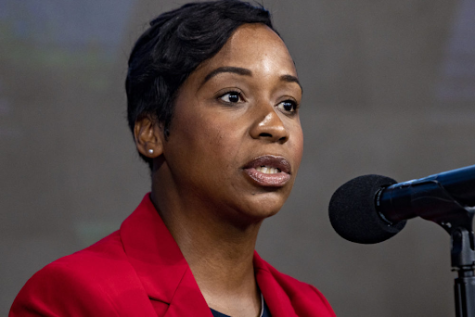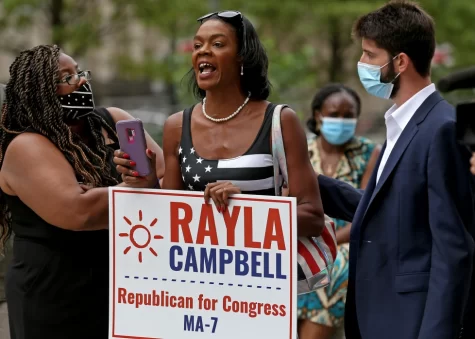City council race: Tania Del Rio running for District 1
Editor’s Note (4/7): The spring election for the next D-1 councilor will be held on Tuesday, May 3, 2022. For more information about the election, please visit here.
Tania Del Rio, immigrant BPS parent and community leader, is running to be the next District 1 City Councilor. District 1 includes the East Boston, North End and Charlestown neighborhoods.
Del Rio’s announcement came mid-December, with Gabriela “Gigi” Coletta, former chief of staff to District 1 Councilor Lydia Edwards (who will be leaving her council seat to serve on the state Senate), recently announcing that she will be running for the District 1 seat also. In 2021, Edwards ran as the incumbent and unopposed in the Boston City Council elections for District 1 while simultaneously running a bid for the state Senate. In Nov. 2021, Edwards was reelected to the Boston City Council. On Jan. 11., after winning a special election in Dec. against a rival Democrat candidate and then, again, unopposed, Edwards was elected to the Senate, opening up the District 1 seat. Senator-elect Edwards’ will be sworn in Thursday, Jan. 20.
A special election for the Boston City Council District 1 seat is likely to be held sometime this spring.
Del Rio has worked in various government roles, including for the Consulate of Mexico. Between 2016 and 2020, she worked in the Walsh administration, first as an aid and then as executive director of the Mayor’s Office of Women’s Advancement. Del Rio worked as the executive director at the YWCA in Cambridge before ending her term this month.
Del Rio, who is married with two children, Lael and Ella, is confident in her ability to lead and implement changes in District 1 through her robust experiences working in City Hall and with constituents. “I do believe that I am the candidate with the most experience for the seat. I led a whole city department, the Mayor’s Office of Women’s Advancement,” Del Rio said. “We launched programs that are currently being expanded, like the childcare entrepreneur fund that helps childcare workers have funding and technical assistance to thrive and maintain the supply of childcare seats for the city.”
Some of her key campaign focuses are affordable housing and displacement, climate change, and “top-notch” municipal services.
The Scope spoke with Del Rio about these issues and her plans to address them if elected as District 1 City Councilor. This interview has been edited for length and clarity.
Can you tell our readers a bit more about yourself?
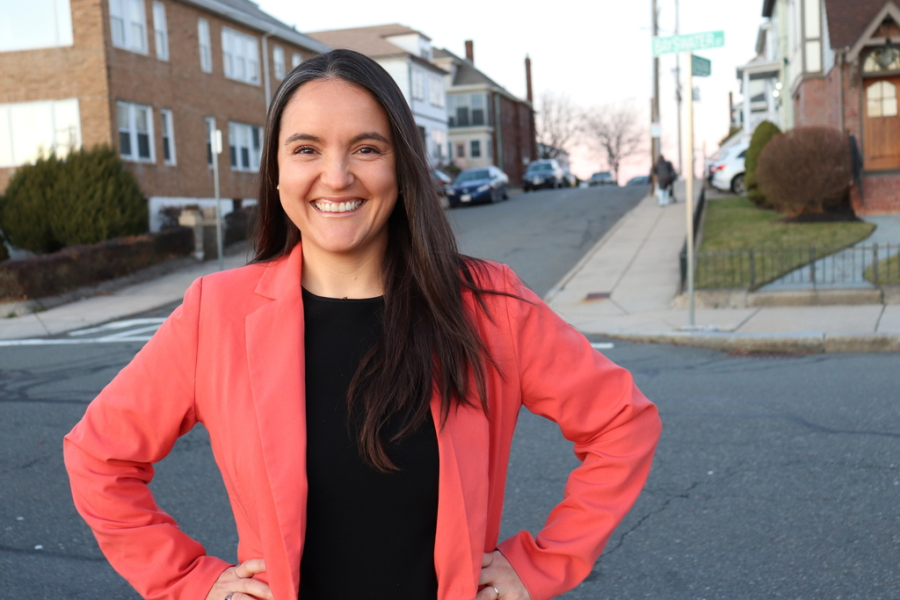
Absolutely. My name is Tania Del Rio. I’m originally from Mexico City, and I am the oldest of four sisters. I grew up moving around a lot, following my dad’s job. I considered my nuclear family to be, you know, my community … until we moved to East Boston and really got involved as one could be in the community; I’ve met my neighbors and gotten involved in some of their efforts, and then furthermore, I worked in City Hall for some years. So, I just became rooted and knowledgeable about this community and fell in love with it in a way that I hadn’t since I had been so mobile. I’m running because I just want to serve that community and give back.
Initially, I was here in Massachusetts as a student, and after graduation, I went to work with the Consulate of Mexico. Before I went to [work at Boston] City Hall, I got familiar with East Boston. My husband is from Colombia. There’s a large Colombian community here, and as I said, I just felt right at home. I’m a mom of two kids. I have one kid in the BPS system, and the other one’s not old enough. Hopefully, she’ll start there next year. What I love the most about this community is that it’s tight-knit, and neighbors have each other’s back.
There’s a story I often tell about when we moved to our current home. We were working on the backyard on a Saturday morning, and we were new to the neighborhood. Eight o’clock, [we] started working on the yard. 8:15 – the first neighbor comes over, introduces himself because we barely knew each other, and just brings equipment and starts helping us work on the yard. 8:30 – the second neighbor comes, brings equipment, starts working on the yard, and by nine o’clock, we had four households, just working on the yard without [us asking] for help or anything like that. That’s the kind of district that we have. East Boston, Charlestown and the North End have that kind of family feel to them. That tight-knit feel to them where people love knowing their neighbors love providing support … and I think city government should just do the same thing. It did it for me. I was able to find work. I was able to qualify for an income-restricted ownership opportunity. I felt like Boston embraced our family, and I just want to make that opportunity available to more people.
What would you say are the top policies on your platform?
So, our campaign is all about stopping displacement. We are thinking about displacement through housing – as most people would when you say the word – but a little more broadly than that. We’ve met a lot of constituents in the District who feel like they need to move out of the community, even though they’re invested, active and just valuable community members. They end up making decisions about moving out because they won’t feel like the schools are serving their children to the level that they’re expecting, especially those families with kids that have a disability.
We’ve also started to meet constituents that have had to move because of climate change; people who have shared with us that their basements are flooding or flooding more frequently, and it’s starting to be a financial cost, so they feel the need to move more inland.
If you combine the housing crisis, rent going up, housing being unaffordable, the situation of BPS – especially now with COVID – and the increasing threat of climate change, we are just hemorrhaging beautiful, valuable families and community members that would otherwise just want to be committed to the community and would like to stay, and that’s what we want to stop, you know. We want to face these challenges head-on, and those are the issues that we want to be putting on the table, and they come from our collective thinking. It’s not just kind of the tiniest ideas. This is the collective idea of everyone in conversation with us and involved in the campaign. We want to face all these challenges while still providing top-notch municipal services because that’s the other thing we’ve heard from the community is that they love the policy focus, but they want to see the rodent infestation taken care of and the snow being plowed on time and efficiently and the potholes being fixed quickly. That’s something I’m excited to do. I love being in community and talking to neighbors because it’s not something I had growing up, and it’s something that I value from the bottom of my heart.
If elected to City Council, how would you work to implement some of these changes?
Yeah, absolutely. I mean, we started even now without even having been elected. For example, today, we were out advocating for lifting the ban on rent control at the state level. You want to be using the power of the bully pulpit that you get as an elected official to make people aware of what’s possible, right. So, on housing, we want to do things like that, but we also want to increase opportunities that are already available at the city level that just need to be expanded. An example is the income-restricted homeownership opportunities, like the one my family benefited from. It’s a low percentage of the affordable housing portfolio in the city. There’s much more opportunities available for rental, for example, which are, you know, we want to keep that, but we want to expand the affordable homeownership opportunities that the city can offer and fund. We also want to be requiring developers to provide more affordable housing and more in linkage fees.
When it comes to the schools, we really want to see investment in the actual buildings, in the infrastructure so that the schools have proper ventilation, so that the buildings that are really really old, including some in our District, can be renovated and become comfortable, safe learning spaces for kids that are conducive to them, you know, exchanging how with their peers and with their teachers.
On climate, I think we can do a lot more about figuring out how to do development in the right places and with the right resiliency safeguards. And like I said, we want to do constituent service as well, and that’s all about being available to the constituents, answering the emails, answering the phones, walking the streets as often as I can and just being in conversation.
District 1, especially East Boston, has a very strong immigrant population and a lot of residents whose native language is not English. How do you plan for your platform to be inclusive to these communities while also building equity for them?
I would just have to point out that as an immigrant myself, I understand and have worked professionally on this issue before through my time at the Consulate of Mexico and in other government experiences that I have. So, I know what our immigrant community goes through. We’ve made sure that we’re providing a multilingual campaign site and language access for people who want to know more about our platform from day one. If you go to our website, you will see that we are already translated into Spanish and Mandarin. There is a big Mandarin-speaking population in Charlestown, specifically. I am bilingual, and I think that’s a huge plus for this District specifically because when people catch that you speak the same language as them, you see this relief. You see this trust-building right away, just right away.
I think that we need to be committed to keeping that going beyond the campaign and into City Hall and try – when we win – to make sure every city department is doing the same things … is communicating in a multilingual way and just providing access to people through many different channels, right, because we can’t just say we’re going to post on social media, and then everyone will find out about the services that they’re entitled to. No, we have to go where people are at, and if that means going into the barbershops, the salons, flyers on the T, you know, going old school, we have to be willing to do that because people are busy. People have two sometimes three jobs, and they don’t have time to go on the city website to find out all the available help. Sometimes people aren’t learning of all of these opportunities because they’re not put right in front of them in a friendly and easy way for them to take advantage of. I would be very committed to using every channel that we could into being out in the community and making sure people understand everything that city government can do for them.
What do you love about District 1?
Basically, what I already shared. Our campaign culture, our whole message and our whole vibe that we want to spread is of appreciation and love for the whole District. I am running because I love this neighborhood. And I love the District. What do I love about it? That tight-knitness, that feeling that if anything goes wrong, I can go next door and ask for help … and my neighbor will have my back. There’s nothing like it. There’s just a beautiful community spirit that we have here.
Another thing that I love is just our diversity. The three neighborhoods all have a different feel. They all have different cultural backgrounds to share with each other. And right now, they’re separated by the harbor. But a neighbor of mine said that we should start dreaming about how the harbor could unite us, whether that be through water transit or more recreational opportunities. How can we make the harbor be a unifier for us? It is a common threat that we face … how can we make it be a common joy?
And just our diversity. It just goes to say … we’re a beautiful tapestry, where there’s threads of different colors and textures. Sometimes they’re going in separate directions, but you weave them together at the end of the day, and it’s a beautiful piece of art. That’s the District, and I love it so much.
Is there anything else that you would like to tell our readers?
I just want to share something I shared with a voter earlier who was on the phone with me … which is our campaign is a place that it’s people-powered. We have a good, big group of volunteers who are so excited and active. We had a lot of them out today. There’s an election day today for the state Senate. They were out in the freezing cold, just trying to engage their neighbors and letting them know about our campaign. That’s the kind of energy you can expect from our campaign. And if you’re new, you can come by, make some friends … you can get involved. If you’ve been here for a long time, you can come [and] meet your friends who you already know and get involved. It’s just the invitation of being part of the people’s campaign of a grassroots effort of something that we’re putting together with lots of love and that we want the community to be proud of at the end.
I would say one more thing is just to remind people that campaigns and elections are a part of the process. But once a candidate gets elected, that’s just really the beginning of the work. Once they’re in an elected position, you must always continue to work with that official to hold them accountable or work with them to make sure the neighborhood’s proposals make it to City Hall and continue advising all of your elected officials. Democracy is a constant conversation. It’s not a one-and-done, so just to remind our neighbors that the process doesn’t really end.
You can learn more about Tania Del Rio’s platform by visiting delrioforboston.com


